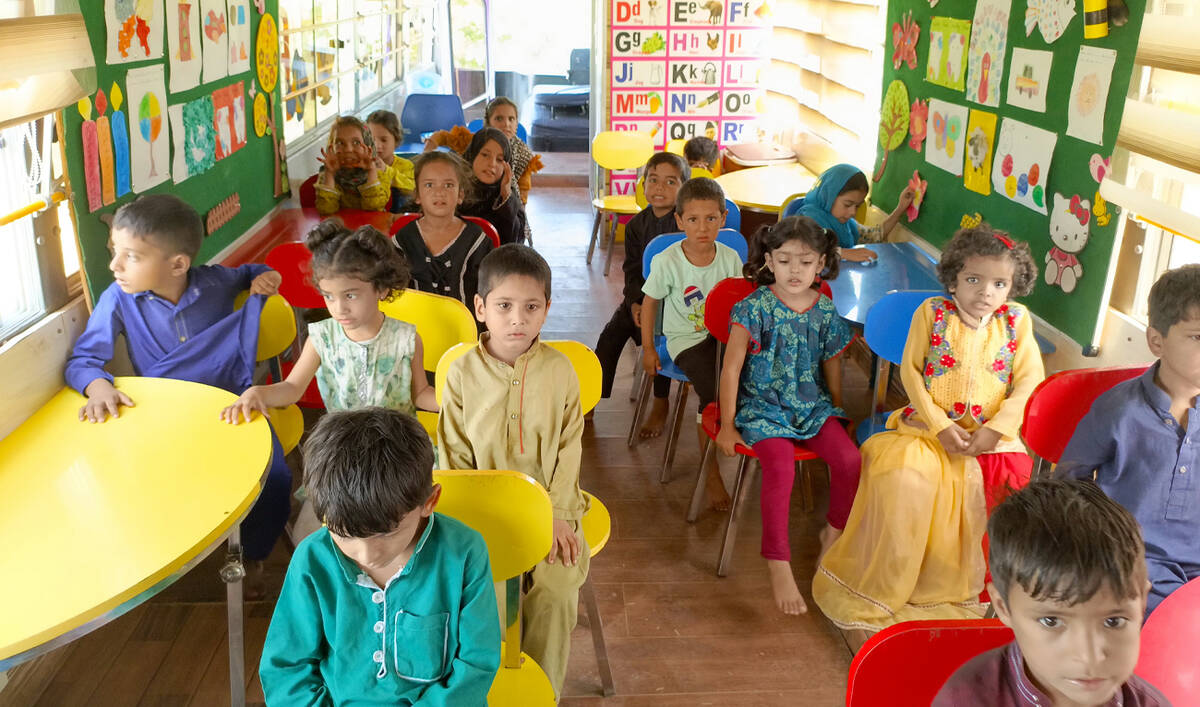ISLAMABAD: The Asian Development Bank will fund upgrades to part of PakistanŌĆÖs creaking railway system, replacing China, after prolonged delays in securing financing from Beijing threatened to put a strain on a strategic mining project, two sources said on Friday.
An extensive revamp of 1,800 km (1,118 miles) of railways has been the centerpiece of a $60 billion Chinese investment program in Pakistan announced in 2015 as part of BeijingŌĆÖs Belt and Road Initiative global infrastructure push. A decade of negotiations, however, have yet to produce a finance package for the rail upgrades ŌĆö the single biggest project under the program with China. And Pakistan is, meanwhile, struggling to repay Chinese debt owed for other projects.
The ADB is in advanced talks to lead the financing of a $2 billion upgrade of a 500-km stretch of the railway line from Karachi to Rohri in the countryŌĆÖs south that had previously been part of the Chinese project, two sources with direct knowledge of the discussions told Reuters.
The upgrade has become urgent, they said, as it is needed to transport copper ore from the Reko Diq mine currently being developed by CanadaŌĆÖs Barrick Mining Corp.
ŌĆ£We will have a crisis. How will you evacuate output from Reko Diq? The exhausted line will come under even more pressure,ŌĆØ one of the sources, a senior government official, said.
There was no immediate comment from PakistanŌĆÖs railways ministry or ChinaŌĆÖs foreign ministry.
The ADB would not confirm the finance package, which is being reported for the first time by Reuters. But it said PakistanŌĆÖs government and the regional lender ŌĆ£have regular discussions on railway sector development.ŌĆØ
ŌĆ£Any potential ADB assistance would be subject to comprehensive due diligence and consideration under ADBŌĆÖs policies and procedures before any commitment is made,ŌĆØ it wrote in a statement to Reuters.
The deal, expected to be announced later this month, would see the ADB lead a consortium to finance the project and bring in an international engineering contractor to carry out the work through a competitive bidding process, the sources said. The ADB announced $410 million in financing for the Reko Diq mine itself earlier this week. And its president is due to visit Islamabad next week, the sources said.
CHINA AND PAKISTAN: ŌĆśIRONCLAD FRIENDSŌĆÖ?
The sources said the plan is diplomatically tricky but has been squared with China.
ŌĆ£We would never do anything to jeopardize that relationship,ŌĆØ the senior Pakistani official said.
China rolled out major power and infrastructure projects after the 2015 launch of the investment program, known locally as the China-Pakistan Economic Corridor. But momentum has stalled, with the last big project ŌĆö the Gwadar East Bay Expressway ŌĆö inaugurated in 2022. Islamabad has fallen behind on payments for electricity generated by Chinese-built power plants. And following a government report looking at the cost of the power stations, Islamabad has for the past year sought to reschedule debt payments for the plants.
ŌĆ£China and Pakistan are ironclad friends and all-weather strategic cooperative partners,ŌĆØ ChinaŌĆÖs foreign ministry said on August 19, ahead of a visit by Foreign Minister Wang Yi to Islamabad this week. In WangŌĆÖs meeting with PakistanŌĆÖs Prime Minister Shehbaz Sharif on Thursday, both sides said they sought to deepen ties and move on to the next phase of CPEC.
PAKISTANŌĆÖS MINING AMBITIONS
The Reko Diq copper and gold mine ŌĆö at the heart of the governmentŌĆÖs strategy to attract investment to PakistanŌĆÖs mining sector ŌĆö is due to enter production in 2028 with anticipated annual output of some 200,000 metric ton of copper concentrate.
One of the worldŌĆÖs largest untapped copper deposits, it is PakistanŌĆÖs largest foreign investment in recent years.
The ADB-financed rail upgrade would modernize the track and bridges from the commercial capital Karachi north to Rohri, close to the city of Sukkur, so that diesel trains can run faster, the sources said.
In Rohri, the line will meet a branch coming from the area of the Reko Diq mine and will carry the copper concentrate to port.
Tim Cribb, Reko DiqŌĆÖs project director, told Reuters that the government and Barrick would work together on securing financing for the upgrading of the branch coming from the west to Rohri.
The mine also faces security concerns, as it lies in the insurgency-hit western province of Balochistan, with militants frequently targeting the rail network.



















